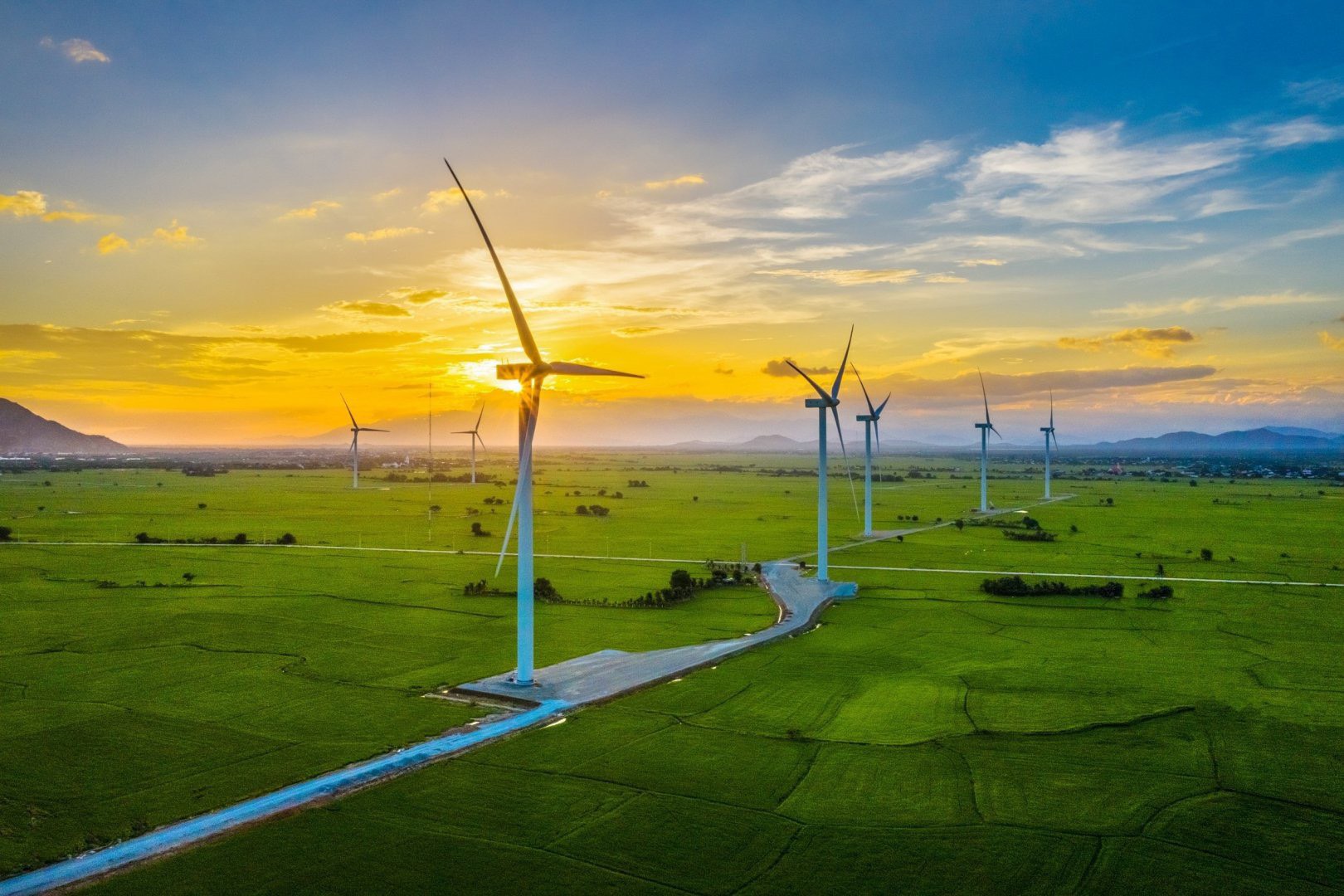
Vietnam will form a sustainable green economy. (Photo: baotainguyenmoitruong.vn)
Right after the UN Climate Change Conference (COP 26) in 2021, the Government took bold steps to realise its set targets on emissions reduction and climate change response, with the issuance of the National Action Plan on Green Growth during the 2021-2030 period, and the National Strategy on Climate Change.
A road map has been drawn to meet the goals, including building legal corridors and supporting business community, sectors and localities to join efforts to reduce carbon footprint.
Electricity from renewable energy projects added to 500kV Vinh Tan transformation station, Binh Thuan province
Heading towards green, clean energy
Vice Chairman of the Vietnam Energy Association Nguyen Van Vy said energy shifting will help ease the environmental burden while reducing the country’s dependence on imports of hydropower, thermal power, oil and gas, and nuclear power.
Notable, the Prime Minister has recently approved the National Power Development Plan VIII, which guides the development of power plants and power grids between 2021 and 2030.
The plan aims to maintain Vietnam’s energy security by ensuring a sufficient supply of electricity to fuel a projected annual GDP growth rate of 7% during the period. It also aims to get Vietnam into the top four countries in ASEAN in terms of power reliability. Additionally, half of the office buildings and homes in the country would be powered by rooftop solar panels by 2030.
Regarding the just energy transition, Vietnam strives to increase the share of renewable energy in the country’s power mix to between 67.5% and 71.5% by 2050. It also seeks to generate green energy for exports, with a target of between 5 to 10 GW by 2030. Energy-related greenhouse gas emissions would be cut to around 27 and 31 million tonnes.
Besides hydropower, which remains the lowest-cost source of electricity, solar power and wind power have gained the competitive edge over coal-fired one thanks to advantages of continuous investments and advanced technologies.
To date, 16,500 MW of solar power, and more than 4,500 MW of wind power have been added to the national grid, accounting for 30% of the total electricity capacity.
Prices of renewable power are expected to fall sharply in the next decades, while electricity generated from fossil fuels will become costlier due to stringent environmental requirements to be put in place.
As fossil fuels are by far the largest contributor to global climate change, governments, enterprises and citizens all over the world have seen it a must to cut greenhouse gas emissions.
The Government has envisaged to increase the share of renewable energy in the total primary energy from 31% in 2020 to 90% by 2050. Advanced technology has an important role to play in accelerating the implementation of renewable energy in the power sector.
Uniform policies needed
Experts said although Vietnam boasts huge potential for renewable energy development, the Government should pay due regard to energy management and technology access to upgrade the power system in the future.
According to Chairman of the Vietnam and Textile & Apparel Association Vu Duc Giang, the sector has embraced green and renewable energy for a long time, with the use of rooftop solar power having brought benefits to many enterprises which consume a massive amount of electricity.
However, financial issues are the main barrier to the expansion of green and renewable energy, Giang said. Not all of businesses are able to invest both in the energy and production, and not all of the banks are willing to make loans for firms to develop renewable energy infrastructure.
Besides local funds, the Government should pen incentives to support enterprises, and encourage commercial banks to offer green credit, green finance and green bonds for enterprises.
Furthermore, management agencies should have plans to assist businesses in selling the spare energy they generate back to the national grid as a way to help them reduce production costs as well as improve competitiveness for their products.
Specific mechanisms should be put in place to lure investment in renewable energy to ensure harmonised benefit for enterprises.
Deputy Director of the Vietnam Institute for Economics and Policy Research Nguyen Quoc Viet said that as rooftop solar power is not totally self-produced and self-consumed energy, enterprises should have a reserve plan.
To this end, adding the power to the national grid should come under careful scrutiny, he added.